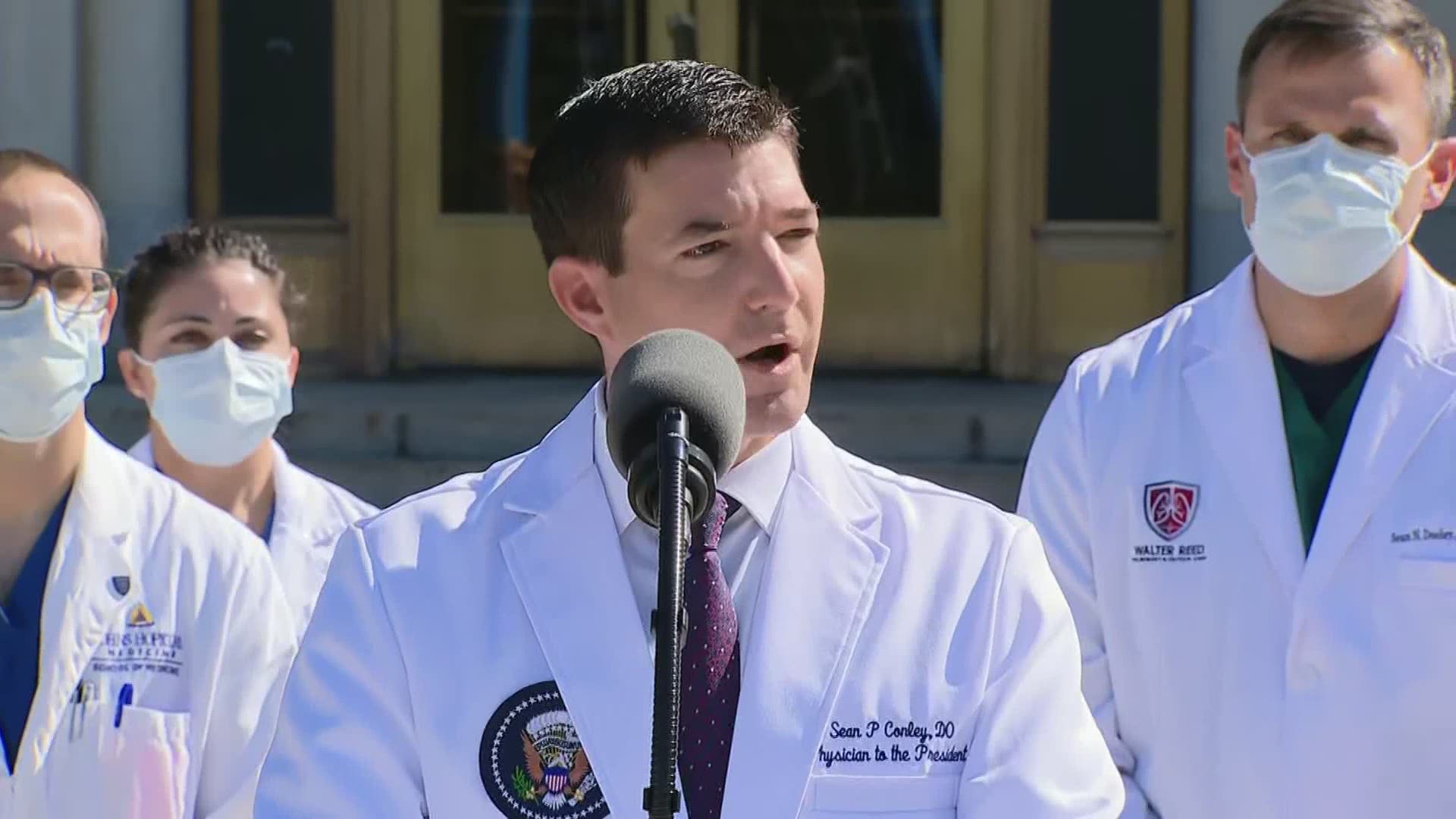ATLANTA — Dr. Sean Conley, President Trump's physician, said during a news conference on Saturday that the president's symptoms were "resolving and improving" and that he had been fever free for 24 hours.
The president is in "extremely good spirits" according to his team of doctors, and said he feels "like he could walk out of here today." Trump himself later said in a tweet he was "feeling well."
The medical team will not be discharging him, of course, as Dr. Conley said the medical team will need continue to monitor the president through the potential phases of the illness.
"The first week of COVID and in particular day 7-10 are the most critical in determining the likely course of this illness," he said.
The physician added they especially want to observe the president as he potentially enters the second, "inflammation" phase of the illness.
That phase has been described as one in which, "some patients with COVID-19 deteriorate at around day 10 after symptom onset, despite a decreasing... viral load."
This is the so-called "cytokine storm" response in which a person's immune system in effect goes into overdrive, "resulting in an excessive inflammatory reaction."
The president is also currently on a course of remdisivir, a drug treatment that in most cases takes five days.
Otherwise Dr. Conley laid out how the team was, "extremely happy with the progress the president has made."
They said he was not having trouble breathing or walking around his hospital unit, and said was not currently on oxygen - but did not directly address whether he had been on oxygen at any earlier point. He also would not disclose how high Trump's fever ever got.
The Associated Press later reported he had been administered oxygen before being flown to Walter Reed National Military Medical Center on Friday night.
Some of the president's symptoms that had largely gone away were described as a mild cough, nasal congestion and fatigue.
The news conference did raise new questions about the timeline of the president's course of COVID-19.
The medical team described administering the experimental Regeneron REGN-COV2 antibody cocktail 48 hours ago, which would extend past when the president's diagnosis was announced and when Dr. Conley said they re-tested him after concerns about a close contact.
"Thursday afternoon, following the news of a close contact is when we repeated testing, and, given kind of clinical indications, had a little bit more concern," the physician said. "And that's when late that night we got PCR confirmation that he (had COVID)."
He also said at the start of the press conference they were "72 hours" into the diagnosis, which would suggest even farther back to Wednesday. He however appeared to clarify that part of the timeline with his answer about when Trump was re-tested.
The White House later issued a statement in which Dr. Conley said he "incorrectly used the term 'seventy two hours' instead of 'day three' and 'forty eight hours' instead of 'day two.'"
The statement added that Trump was first diagnosed Thursday evening but did not address at what exact time the president was re-tested that afternoon, or when they learned of the close contact exposure.
Trump attended a fundraising event at his golf club in New Jersey Thursday afternoon which started at 2 p.m.

